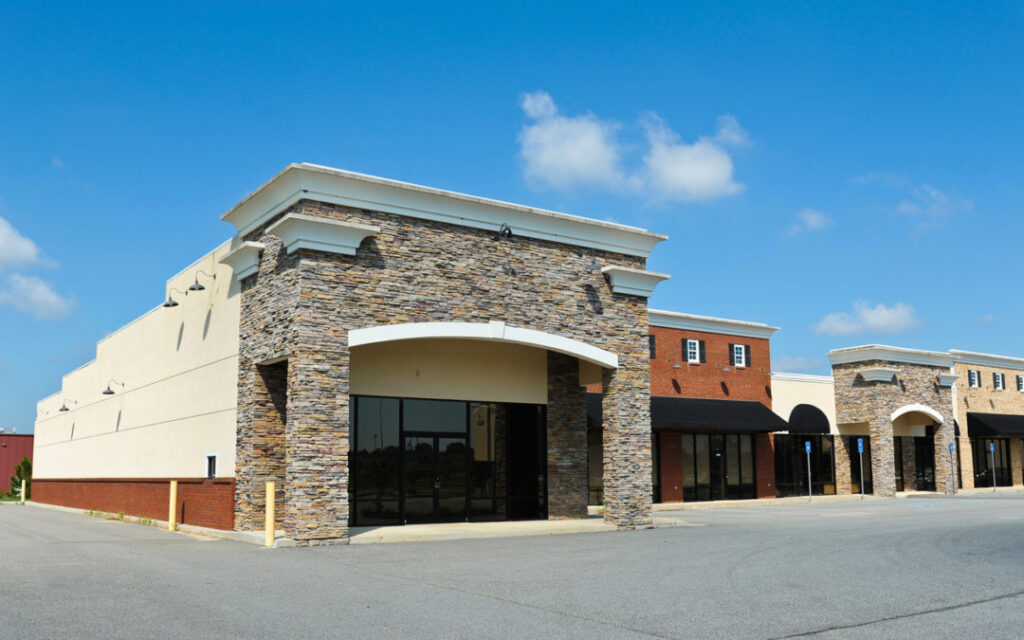On paper, the idea of leasing space to a national retailer will often seem more attractive than leasing to local tenants. However, locally owned businesses are often the lifeblood of neighborhood and community shopping centers, and therefore extremely valuable to your property. Since local tenants often come to retail centers with no brokerage representation and little real estate experience, they can be challenging to deal with. In this blog post, we’ll look at some of the things you and your broker need to do when leasing to local tenants.
1. Talk to your broker about your ideal tenants
If you own a class A shopping center with limited vacancies, you might be reluctant to lease to local tenants because the valuation of the property is partially based on the quality of the tenant and the associated risk. In other words, if you secure a long-term lease with a chain like Panera or Starbucks, that space will be more valuable than if it is occupied by a business with just one location, or by a business backed by a personal guaranty rather than a corporation with significant assets.
However, most thriving grocery-anchored shopping centers have a mix of locally owned businesses and national chains. Locally owned businesses can be a desirable addition to communities and drive traffic to your location, boosting all businesses in your center.
Local tenants can be an important part of a shopping center, but you should be upfront with your broker about your thoughts on local versus national tenants.
2. Make sure your broker prequalifies the tenants
Local tenants can have a positive impact on your property but come with more risk if not properly vetted. A national retail brand will have a demonstrated history of success, while a local mom-and-pop business may not. However, even a start-up business, newer business, or business with a single location can be pre-qualified.
In many cases, it can be easy to spot the red flag prospects. People who do not yet have a business plan or investors should be screened out quickly by your broker. In many cases, however, talking with prospective tenants will reveal someone who does have a business acumen, who has thought about the type of space they need, and can talk about projected sales. These are start-ups who’ve thought things through and may add local flavor and diversity to your center offerings. Perhaps they are owners of another successful business in another location with an established local following, such as a restaurant owner looking to open a second location. These tenants come with less risk.
3. Ensure your broker goes by the book
When the broker first makes contact with the tenant, they’ll need to supply them with a Pennsylvania Consumer Notice. This is a document that makes it clear in writing that the broker represents the landlord, not the tenant. It’s designed to protect the broker and the landlord, as well as the tenant.
It’s also important to make sure the tenant understands all the costs associated with occupancy that they will be responsible for, including rent, triple-nets (common area maintenance, taxes and insurance), utilities, permits and tenant fit-out, if any. This is also the time to make sure the tenant’s proposed use is permitted. You and your broker should be aware of any existing tenants that may exclude or restrict the proposed use, and the use should be verified with the municipality to ensure it is permitted. Many landlords prefer that this municipal verification be handled by the tenant, so the tenant is not relying on you or your representative to relay information or approvals that they act on.
When leasing to local tenants, the broker will also help the tenant understand the lease process and timeframe, as well as each party’s responsibilities in relation to construction, permits, signage and the costs connected with a certificate of occupancy. This understanding not only helps to protect the tenant, but it also helps you, since you can lose valuable income if there are future disputes about these items.
Do you have retail space that needs a new tenant? Turn to Equity Retail Brokers. Landlords rely on our team to find the ideal tenants for their retail centers, because they know retailers trust us for our geographic market knowledge and personal service.
Whether it’s a trusted family-owned business looking to open a second location or a national chain seeking new markets, no team is better equipped to find the right tenant for your property.
